Putting down weapons to grow peace in Colombia
This article is part of a series to mark the World Food Programme (WFP) receiving the 2020 Nobel Peace Prize in Rome on 10 December. Click here to watch 'The People's Prize' event on Facebook
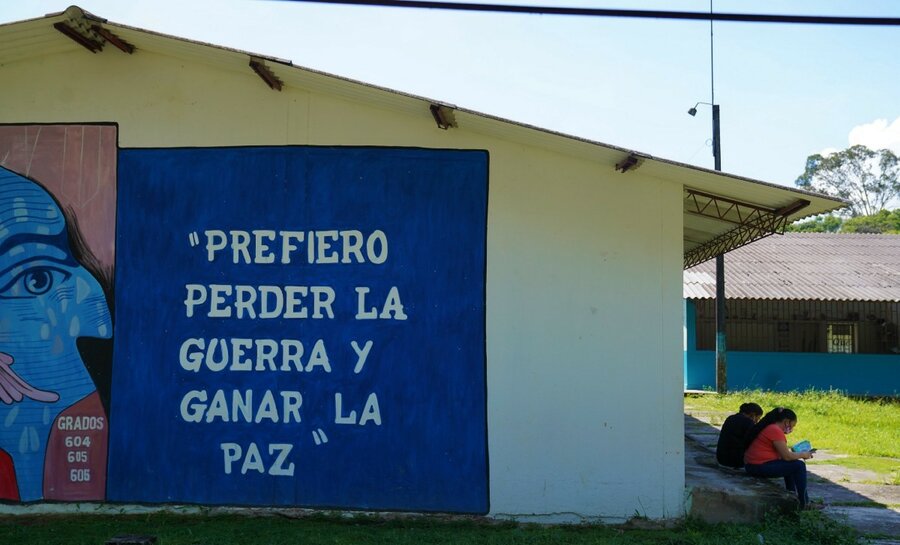
The Training and Reincorporation Centre may sound forbidding but it’s a place where former combatants in Colombia’s conflicts can learn poultry and fish farming with the support of the World Food Programme (WFP).
“Peace is the way”: this simple message on one of the building’s exterior walls, which are emblazoned with murals, has been ignored by warring parties for 52 years.
Every day here, 187 former combatants and their families take part in agricultural projects as part of a process to bring them all back into mainstream society—the centre, in Arauquita municipality, is the biggest of its kind in the country.
The aim is to train people to diversify both the production and consumption of food; while providing access to local markets. For the former combatants, this means going back to a starting point they know all too well – they come from farming families and grew up in the countryside.
“A hungry population cannot move forward, only backwards.”
Edgar Guevara was 15 when he joined FARC (the Revolutionary Armed Forces of Colombia) along with two of his brothers. Following a peace agreement with the Government of Colombia, ratified in 2016 after initially being rejected by voters, he put down his weapons and picked up tools—to grow onions. “Food is the most important thing in anyone’s life – no matter where they live or what they do,” he says. “A hungry population cannot move forward, only backwards.”
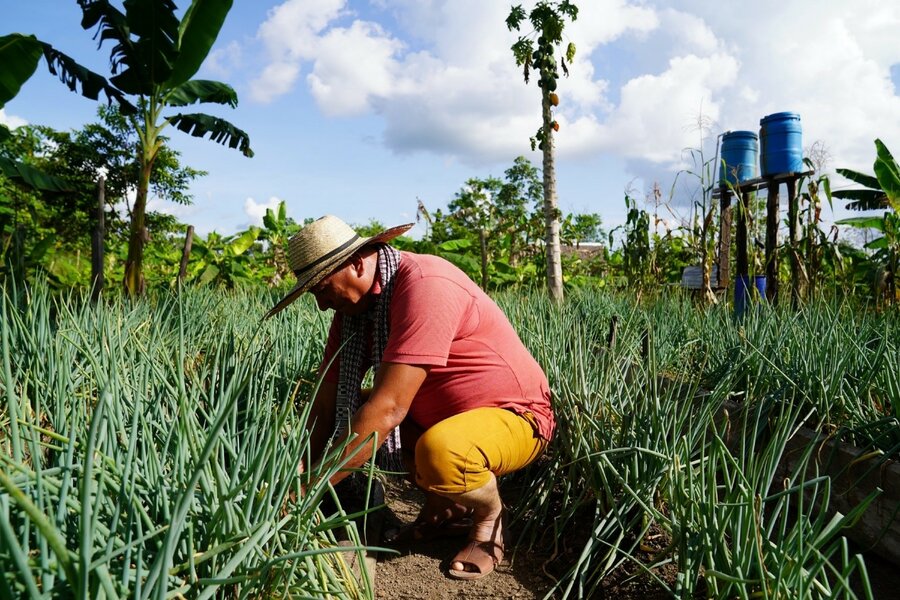
This process implies a major shift for Edgar and other former combatants. They know what’s at stake.
“We do not want to see more Colombians dying in an absurd conflict,” says Edgar. “We are much better off focusing on producing, harvesting, working in the fields, so that Colombia can thrive and our children are guaranteed access to education and jobs. This is what we want.”
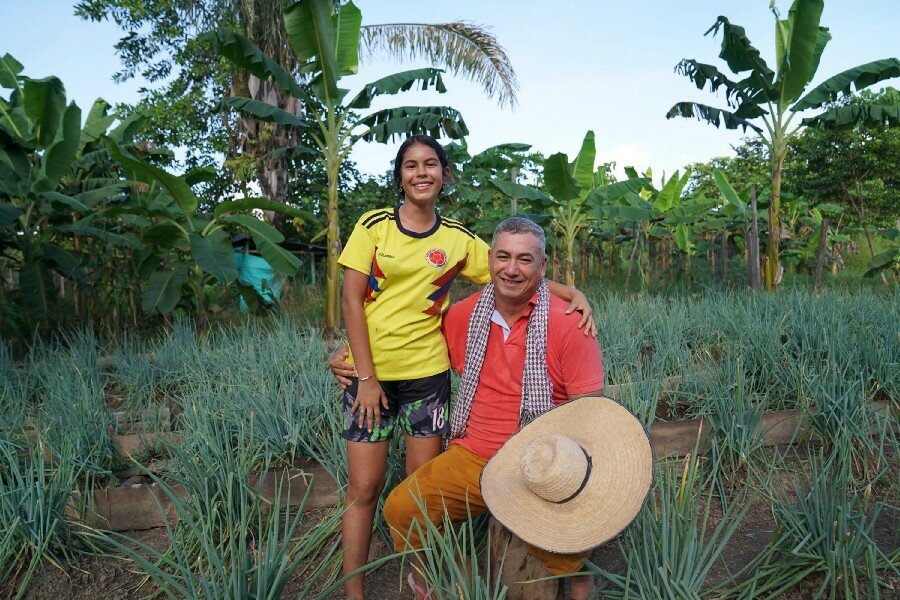
Harvesting hope
Violence forces families to flee their homes and creates fertile ground for hunger, which in turn generates more instability. This year, in the face of a growing number of violent incidents, the World Food Programme (WFP) in Colombia has stepped up its activities in support of communities that have been affected by violence, displacement or confinement, delivering humanitarian assistance to more than 110,000 people.
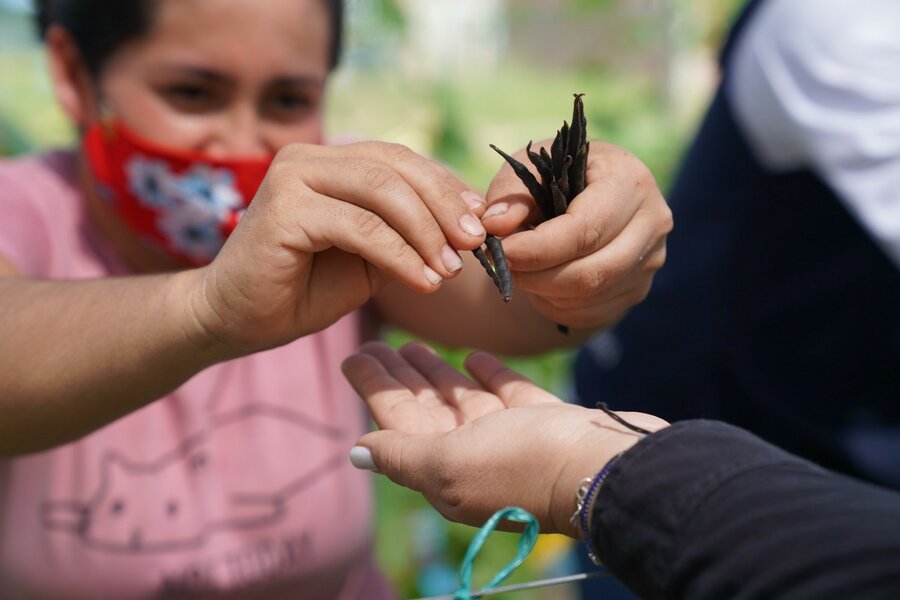
Georgina is one of these people. Her father was killed when she was still a baby. Now she wants to leave her painful past behind and give her children some hope working in the community garden in Panamá de Arauca.
“I no longer have to buy vegetables as here they have taught me how to grow them,” says Georgina. “This enabled me to provide food to my children, to be with them and to share with other families. I have the opportunity to move forward despite all I have been through.”
In Colombia there is a growing number of projects where thousands of families share a common space for peace and reconciliation. WFP has been supporting these processes and will continue working to strengthen communities by enhancing their food security and building peace.
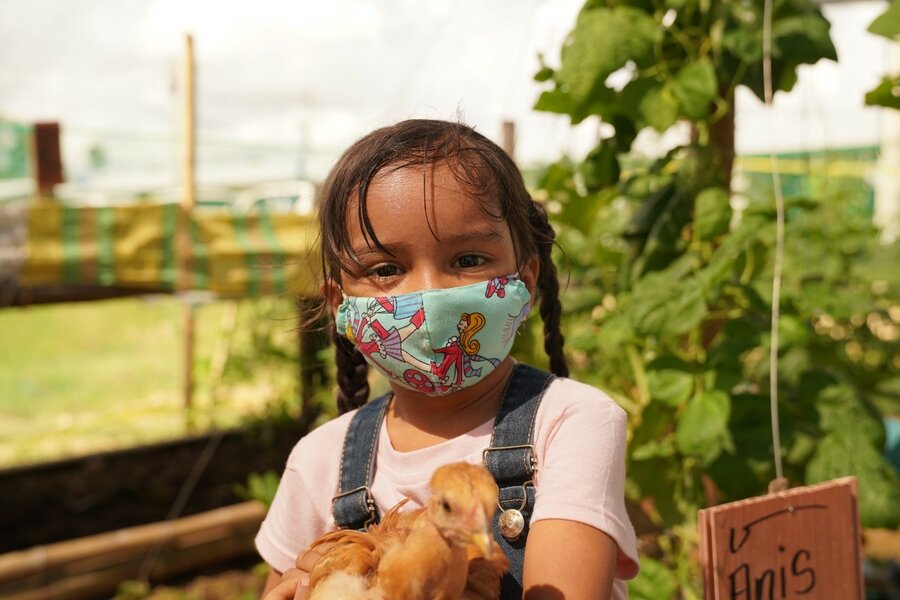
Education for peace
The José Antonio Galán rural school in Saravena, in northwest Arauca, provides evidence that peace is the cornerstone for development and new opportunities. Every day, it welcomes victims of conflict, migrants, the children of former combatants and children with disabilities.
“We have had cases of children crying with hunger”
Director Emperatriz Montes approaches education with holistic and innovative initiatives that see the involvement of the broader community. However, this has not been so smooth a process due to the context and the conditions students live in.
“In 2018, we found out that out of 872 students, 420 had been affected by violence, 72 had at least one family member who had been ‘disappeared’ and 32 lived with family members who had been injured by landmines,” he says. “Many of our students lived in extreme poverty and there were high rates of malnutrition. We could not teach them Maths while they were living a tragedy at home. We had cases of children crying with hunger”.
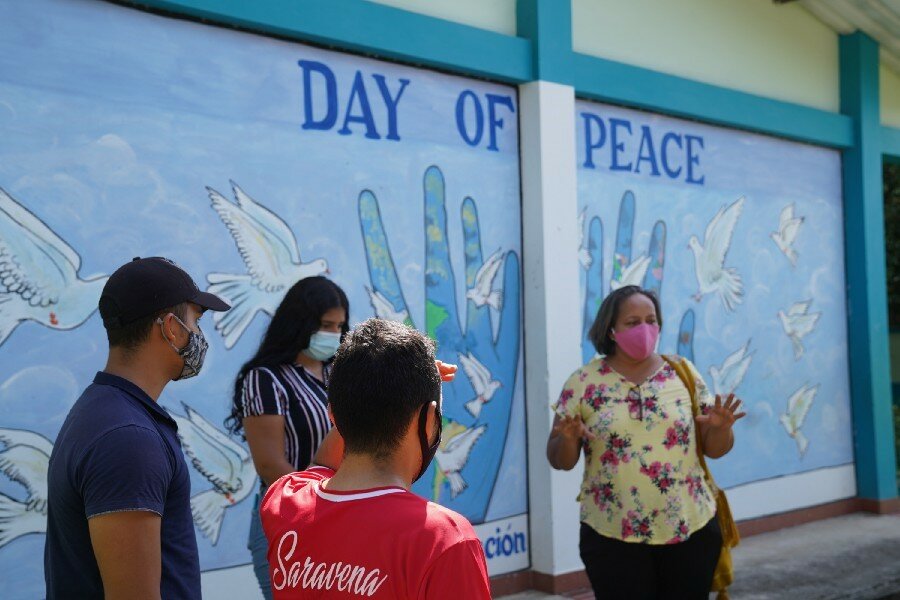
In 2019, with WFP’s support, the school started to develop productive projects including training in agriculture and fish farming for the students. The most vulnerable families were given vouchers they could use for their shopping.
Emperatriz’s dream is to build peace on a foundation of education and food production.
When the coronavirus pandemic arrived, the school vegetable plot was opened to the community. Looking after the plot not only keeps the young ones busy, it also lightens the burden of providing food and promotes a healthy diet thanks to the variety of fruits and vegetables being produced.
“We sowed coriander, cucumbers, tomatoes, beetroot – I had never seen a beetroot plant! We learned so much. Now my kids know how to sow all these vegetables: it’s a blessing!”, says Maria Romero, a Venezuelan mother whose two children study at the school.
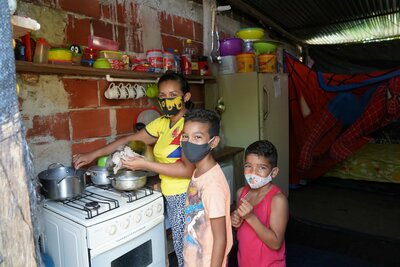
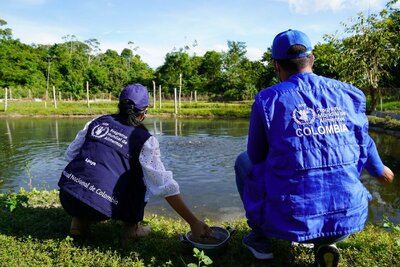
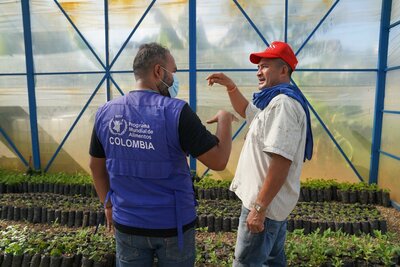
On 10 December, WFP will receive the 2020 Nobel Peace Prize. In a country like Colombia, emerging from more than half a century of violence and conflict, WFP’s work is an integral part of efforts to build peace. Right from the beginning, WFP has supported the peace process in the country, providing assistance to victims as well as to former FARC combatants, and preventing children from being recruited into armed groups by implementing projects that enhance the capacity of communities for socio-economic reintegration, food and nutrition security, and social inclusion.
Since 2017, WFP has been supporting 18 former Territorial Spaces for Reincorporation and Training (ETCR) in eight departments across the country with productive projects that promote economic reintegration as a step toward peace building, and contribute to empowering women to enhance their incomes, achieve full recognition of their rights and prevent gender-based violence.



